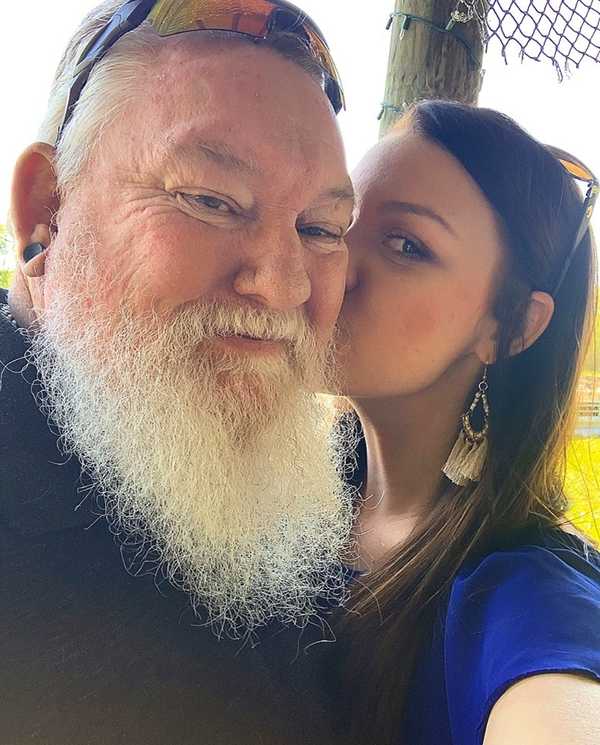When I die, I’m not going to be able to smell the flowers you place at my gravestone so please don’t bring them to me. Don’t give a speech saying how much you loved me and miss me. Don’t post Facebook messages saying things like, "We have a new angel in heaven." I won’t need any of that.
Instead, you should bring me flowers while I am still alive. Bring them to me while I can still smell the delicious scent of lilacs. Bring them to me while I can still look at them sitting on a vase on the kitchen table and smile every time I walk past them. Do call me when you think about me to tell me that you love and appreciate me and that you miss me. Then actually make an effort to see me. Do post cute messages on my Facebook wall saying things like, “Hope you have a good day,” or comment on my Instagram pictures telling me that it looks artsy or that the pancakes I had for breakfast looked good. I need that. We all need that.
We realize the things and people we had were special right as we lose them. As a society, we tend to romanticize people after they die, but we fail to love them while they are still alive. A father abandoned his three children under the age of four. He never remembered their birthdays or even called. The children grew up to despise him. They blamed most of their problems on growing up without a father and complained about the fact that he was wealthy, but they were struggling financially. He never reached out to help. One day the father passed away suddenly. The kids, now teenagers, mourned his death deeply. I understood and comforted them, but as the months passed, I starting having trouble understanding. They started posting pictures of him on their Facebook pages on his birthday with captions such as, “You were the best father anyone could have ever asked for. I love you and miss you dearly.” Conversations suddenly became about how hard it was to lose their father, but the problem was that they had never even found him. Suddenly all the wrongs he committed in life disappeared, and the romanticized idea of the father they always wanted, emerged.
How many more times will we read news stories of kids and teenagers who committed suicide floating around social media including thousands of comments such as, “You were such a beautiful girl. You will be missed so much.” People will definitely miss her, but are you personally going to miss her so much? She was in your classes for three years consecutively, and you never said hello. You secretly made fun of her when that rash grew on her face. You never thought she was beautiful. How is she beautiful now that she is gone? Is the residue left after the burning of a body placed inside a dark, cold space somehow more beautiful than the actual person that she really was? How is that more beautiful than a living body who had the ability to think, smile, and knit?
The problem lies in regret. Anne Frank said that “the dead receive more flowers than the living because regret is more powerful than gratitude,” and how right she was. You regret not being able to make that person’s day a little better, somehow brighter. You regret not talking to your aunt in five years merely because phone calls are somehow antiquated. You regret not mailing your grandmother pictures of yourself at prom having fun with your friends. You rather post them on Instagram and get gratification from the likes you get. But in sending that picture to your grandmother, you could have filled her heart with joy. All of us do it. And we will always have regrets, but we can certainly diminish the amount of regret we have by being more grateful of everyone and everything around us.
You have most likely heard that you should live every day like it is your last day on Earth, and that is suitable advice, but the roots of that statement are holding onto dirt showered in selfishness. Rather, treat every person like it is their last day on Earth. How does that change your perspective? Will you help that man pick up the box he dropped? You don’t know if, on the way home, he will be distracted sending a text message at a red light and will be hit by an incoming truck without warning. Improve other people’s quality of life by treating them with extraordinary care and kindness.
Of course, the point in this is moderation. Do not go so far as being used by others or anxiously feeling sad every time someone asks you for a favor and you have to say yes because you are scared they will pass away tomorrow, and you will regret not helping them. That is not healthy. Rather, use this advice as a theory. You’ll be surprised of the appreciation, joy, and fulfillment sprouting from your heart when you think of others before yourself.
*The death of a loved one is the biggest pain one can experience. I do not mean to hurt anyone who has lost someone near and dear to them. I am extremely sorry; and this article does not apply to anyone who has lost somebody they truly loved and cherished, but rather to those of us who did not love or appreciate those around us until after their death. The purpose is to bring awareness to the problem of regret and lack of love while one is still alive—to make everyone's lives more beautiful before they can no longer smell the flowers.





















